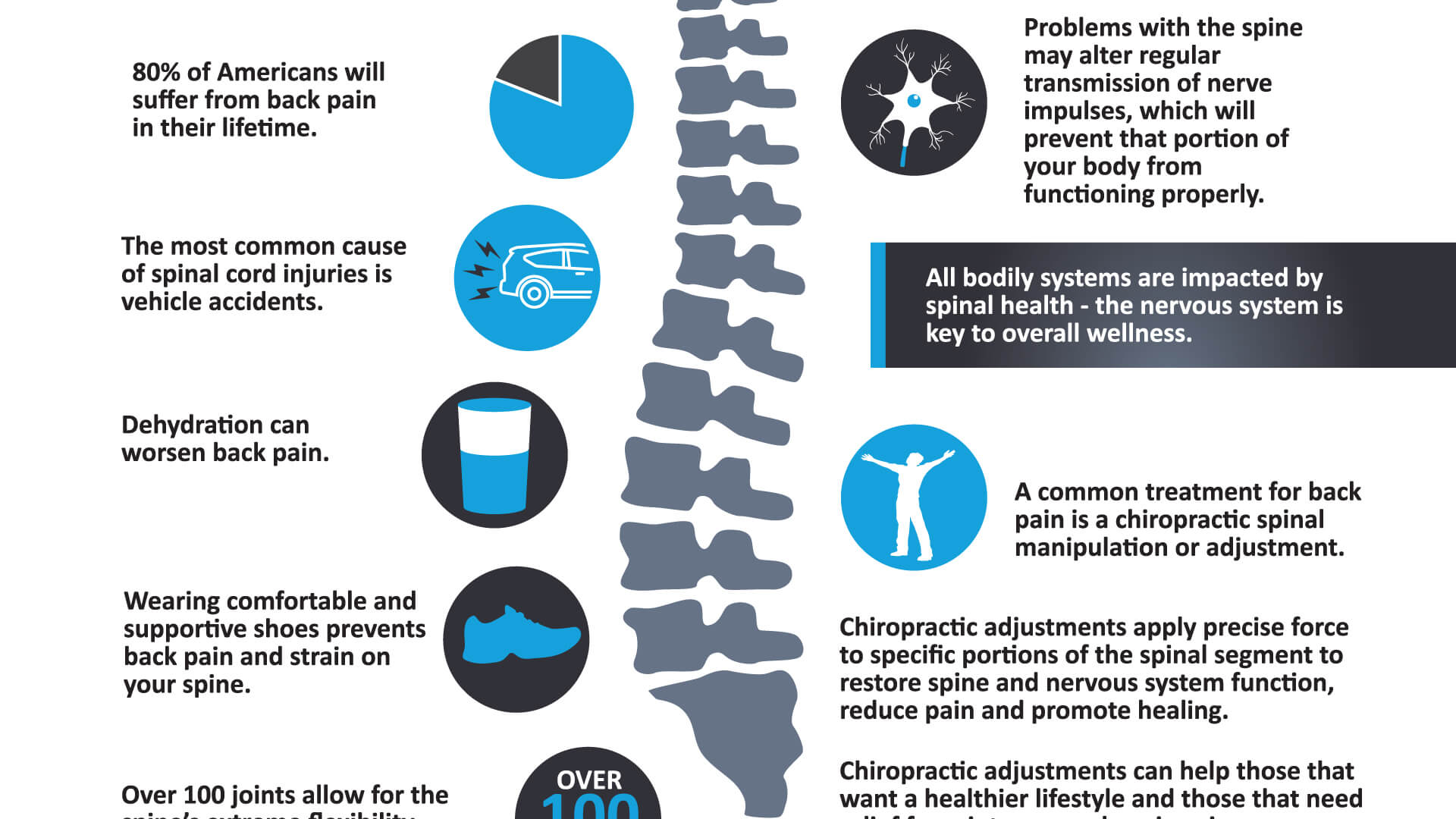Nourishment'S Impact On Back Pain Alleviation: Dietary Choices To Embrace And Those To Avoid
Nourishment'S Impact On Back Pain Alleviation: Dietary Choices To Embrace And Those To Avoid
Blog Article
Get More By-Hsu Sharpe
When it involves managing your back pain, the food selections you make can dramatically affect exactly how you feel each day. Think of having https://goodchiropractornearme40627.is-blog.com/37034477/the-five-crucial-reasons-to-check-out-a-chiropractic-practitioner-opening-discomfort-alleviation-and-advancing-wellness to ease your pain simply by readjusting what you eat. By understanding the role of nourishment in pain in the back monitoring and understanding which foods to include or steer clear of, you can take aggressive actions in the direction of a healthier and a lot more comfortable lifestyle. The connection between nutrition and back wellness is much more extensive than you might realize-- let's discover how specific foods can either calm or worsen your neck and back pain.
Significance of Nourishment in Back Pain
Nutrition plays a vital duty in handling pain in the back. Your diet regimen can considerably affect swelling degrees and overall pain levels in your back. Eating a well balanced diet rich in nutrients like vitamins D and K, calcium, magnesium, and omega-3 fatty acids can help in reducing swelling and reinforce bones, which are important for back wellness.
In addition, preserving a healthy and balanced weight with appropriate nutrition can minimize tension on your spine, minimizing the risk of neck and back pain.
Moreover, particular nutrients like antioxidants discovered in fruits and vegetables can help combat oxidative tension and advertise healing in the body, consisting of the back muscles and back.
On the other hand, taking in excessive amounts of processed foods, sugary drinks, and undesirable fats can add to inflammation and weight gain, exacerbating neck and back pain.
Foods to Consume for Back Health
To sustain a healthy and balanced back, including nutrient-rich foods right into your day-to-day dishes is crucial. Consisting of foods high in anti-oxidants like berries, spinach, and kale can help in reducing swelling in your back, alleviating pain and discomfort. Omega-3 fats located in fatty fish such as salmon and mackerel have anti-inflammatory properties that can profit your back health and wellness.
Furthermore, taking in nuts and seeds like almonds, walnuts, and chia seeds offers vital nutrients like magnesium and vitamin E, which sustain muscular tissue feature and decrease oxidative anxiety. Including lean healthy proteins such as poultry, turkey, and tofu can assist in muscular tissue repair and upkeep, promoting a solid back.
Don't forget to consist of dairy products or strengthened plant-based options for calcium to sustain bone health and wellness. Finally, moisturize with plenty of water to maintain your back discs moisturized and operating efficiently. By including these nutrient-dense foods in your diet, you can nourish your back and assistance general spinal health.
Foods to Prevent for Back Pain
Select avoiding processed foods high in sugarcoated and trans fats when seeking relief from neck and back pain. These types of foods can contribute to swelling in the body, which might aggravate neck and back pain. Say no to sweet snacks sweet, breads, and sweet drinks, along with fast food things like hamburgers, fries, and fried chicken that are typically loaded with trans fats.
In addition, avoid foods including high levels of refined carbs, such as white bread, pasta, and pastries, as they can spike blood sugar levels and possibly aggravate swelling in the body.
It's likewise important to limit your intake of foods high in saturated fats, like red meat and full-fat dairy items, as they can contribute to inflammation. Processed foods like delicatessens meats, chips, and packaged snacks are frequently high in saturated fats and ought to be eaten in small amounts.
Final thought
To conclude, taking notice of your diet plan and making clever food choices can have a substantial effect on taking care of pain in the back. By incorporating nutrient-rich foods like berries, fatty fish, nuts, and lean proteins, and avoiding processed and sugary items, you can help reduce inflammation and support generally back wellness. Bear in mind, what you consume plays an important function in how you feel, so ensure to prioritize your nutrition for a much healthier back.
